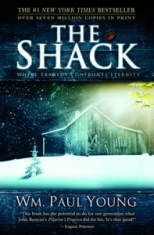Most Sunday mornings find me in church. Sometimes as we sing hymns and choruses or as people pray or speak, I look around for newcomers. If I see any, I wonder: do they understand the words they’re hearing, or does it sound like a secret code… or insider jargon?
There’s the Shakespearean or King James English of the classic hymns. And old or new music can rely on references that the well-churched understand but that could mystify a stranger.
“Christian-ese” is based on the assumption that all hearers have the same knowledge base to supply meaning to the references given. With fewer and fewer people growing up in church, that’s not the case anymore.
And while we want the long-time members of our congregations to be comfortable and able to worship in ways meaningful to them, it can’t be at the cost of excluding the uninitiated visitor.
Sometimes after a particular song I feel like the leader should explain its obscure references: especially lines about the blood, the Lamb, or marching to Zion. Beautiful, poetic imagery. But it’s figurative, symbolic. And if you don’t know the symbols, you may not have time or inclination to figure it out. You sure won’t ask the stranger in the next seat, who’s nodding and smiling in agreement.
Dorene Meyer wrote an interesting post at the Canadian Writers Who Are Christian blog, called “A Clear Message”. (Follow the link to read the whole post) In part she says:
I was sitting in church today, singing songs that were written 200 or even 400+ years ago, mouthing words like, “hark, thine, oxen, ass, whither, leadeth” and wondering how much our choice of songs has hindered the spread of the Gospel in our century….Why do we as followers of Jesus, hold so tightly to words and phrases and songs that create misunderstanding, confusion and lack of comprehension of the simple Gospel truth that Jesus taught?
Dorene’s suggestion is to make better use of the contemporary-language worship music available. I agree.
But I look at the lyrics of classic hymns from John Newton, John Wesley, and others not named John, and I’d like to add this hope too: can’t we find skilled song-smiths to update the language without marring the meaning? Some of these hymns pack a serious theological punch. Getting the message into our heads and hearts through song is as valid now as in the 1600’s.
Before anyone starts throwing things, let me point out that we’ve embraced carefully, prayerfully-done translations of the Bible into the English language of our times, with greater frequency as language continues to change. The New International Version, not a particularly ancient text, has just released a fresh update under a 2010 copyright date. If you compare verses at Biblegateway.com with your home NIV, you’ll find subtle differences.
And the Book of Common Prayer has been replaced in many Anglican churches with the Book of Alternative Service… including an updated rendition of the Lord’s Prayer. (While there may be other issues with these changes, my point is that there’s a felt need to make the language understandable to the average pray-er in the church.)
Then there are updated versions of classic Christian books like Oswald Chambers’ My Utmost For His Highest and many of George MacDonald’s novels. Our language is evolving so rapidly that even the works of J.R.R. Tolkien and C.S. Lewis feel old-fashioned and a bit awkward. Ten years ago when I read them aloud to my kids, I translated as I went.
I don’t want to let these treasures slip from our contemporary experience, but neither do I enjoy falling back into archaic language. And I’m old enough to understand it! What will the younger generations—and those to come—miss because it’s encrusted in thees and thous and wherefores? (Did you know, “wherefore” means “why” or “therefore”, and not “where”?)
It’s fine for us to say listeners and readers should recognize the value of the message and embrace it anyway. It may be difficult to understand, but it’s not impossible. A little work never hurt anyone.
But it looks… sounds… feels… old-fashioned. Out of date. Irrelevant. And especially in an age where everything is instant, the value has to be clearly visible on the surface. Old English, even early/mid-20th Century English, may not be a foreign language but it’s at least an obscure dialect.
Do we want people looking at the liberating message of Jesus, be it in song, in article or in fiction, as some out-dated tradition? Don’t we want to show it’s as fresh and relevant today as ever? Then we need to speak the language of the time.

